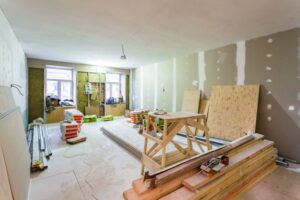
Mold is a common issue in homes and buildings, but it’s not always easy to detect or resolve without professional help. Mold inspection Los Angeles is a crucial process that can protect both property and health. Whether you’re buying a new home, renting an apartment, or noticing musty odors in your current space, understanding what mold inspection involves can save you time, money, and potential health risks.
What Is Mold and Why Is It a Problem?
Mold is a type of fungus that thrives in moist environments. It spreads through microscopic spores that float through the air and can settle and grow when they land on damp surfaces. Common indoor molds include Cladosporium, Penicillium, Aspergillus, and Stachybotrys chartarum (also known as black mold).
While some molds are harmless, others can cause health problems—especially for people with allergies, asthma, or weakened immune systems. Mold can also cause structural damage to buildings by feeding on wood, drywall, and other organic materials.
What Is a Mold Inspection?
A mold inspection is a detailed examination of a building to identify signs of mold growth, assess the extent of contamination, and determine the source of moisture that may be fueling the mold. It typically involves:
-
Visual Inspection: A professional will examine areas where mold is likely to grow—such as basements, bathrooms, attics, and around windows or HVAC systems.
-
Moisture Assessment: Inspectors use tools like moisture meters and thermal imaging cameras to detect hidden dampness in walls, floors, or ceilings.
-
Air Quality Testing: This may include collecting air samples to measure mold spore levels indoors versus outdoors.
-
Surface Sampling: Swabs or tape samples may be taken from visible mold colonies for laboratory analysis to identify the type of mold.
When Should You Get a Mold Inspection?
You should consider a mold inspection if you:
-
Notice persistent musty odors in your home.
-
See visible mold growth or water damage.
-
Experience unexplained health symptoms like coughing, sneezing, or skin irritation.
-
Are buying or selling a property.
-
Have had recent water intrusion from flooding or plumbing leaks.
Benefits of Professional Mold Inspection
Hiring a certified mold inspector offers several advantages:
-
Expertise: Professionals can identify mold and moisture problems that untrained eyes might miss.
-
Accurate Diagnosis: Testing can confirm the presence and type of mold, which guides proper remediation efforts.
-
Preventive Measures: Inspectors can recommend solutions to prevent future mold growth, such as improving ventilation or repairing leaks.
What Happens After the Inspection?
If mold is found, the inspector will provide a report detailing their findings and recommendations. This may include:
-
A description of affected areas.
-
Laboratory results, if samples were taken.
-
A remediation plan, including steps to remove the mold and fix the underlying moisture issue.
In some cases, the same company may offer remediation services, though many industry experts recommend hiring separate firms for inspection and cleanup to avoid conflicts of interest.
Final Thoughts
Mold inspection is an essential step in maintaining a safe and healthy indoor environment. Whether you’re dealing with a suspected mold problem or simply want peace of mind, a professional inspection can provide valuable insights and help you take informed action. When it comes to mold, early detection and proper intervention are key to protecting both your property and your well-being.






